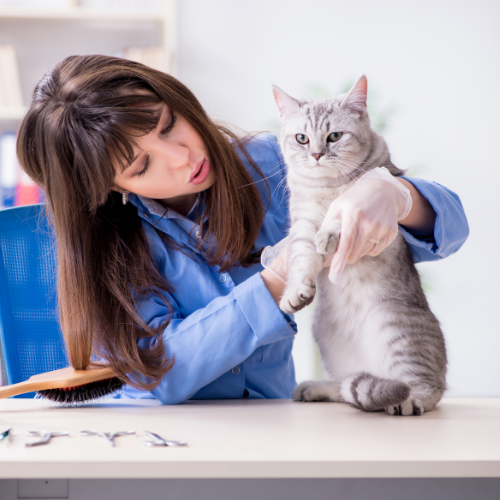
Natural vs. Chemical Worm Treatments for Cats: What's Best for Your Furry Friend?
Hey there, fellow cat enthusiasts! If you've ever found yourself in the rather icky situation of dealing with a worm infestation in your beloved feline friend, you know it's no picnic. Not just for the squeamish factor, but because we all want what's best for our pets' health and happiness. Today, we're diving into the great debate between natural and chemical worm treatments for cats. It's time to demystify these options, lay out the pros and cons, and help you make the best choice for your whiskered companion.
The Unwelcome Guests: A Brief Intro to Worms
First off, let's talk about the unwelcome guests themselves. Cats can be prone to several types of worms, including roundworms, tapeworms, and hookworms, each presenting its own delightful array of health issues. Symptoms can range from diarrhea and vomiting to weight loss and anemia. So, catching and treating these parasites is crucial for your cat's well-being.
Chemical Worm Treatments: The Traditional Route
Chemical or pharmaceutical worm treatments have been the go-to for many years, and it's easy to see why. They're effective, fast-acting, and can target a broad spectrum of parasites. Brands like Drontal or Profender come to mind, offering spot-on treatments or oral medications that can clear up infestations within days.
Pros:
- Fast-acting: These treatments usually work quickly, reducing the parasite load in your cat's system in a matter of days.
- Broad-spectrum: Many chemical treatments are designed to eliminate multiple types of worms, making them a one-stop solution.
- Vet-approved: Vets commonly recommend these treatments, ensuring they're safe and effective for most cats.
Cons:
- Side effects: Chemical treatments can sometimes lead to side effects, ranging from mild (like drooling or temporary lethargy) to more severe reactions in rare cases.
- Cost: Over time, the price of these medications can add up, especially for multi-cat households.
- Resistance: There's the potential for parasites to develop resistance to chemical treatments, making them less effective over time.
Natural Worm Treatments: The Holistic Approach
On the other side of the coin, we have natural remedies. These can include a variety of herbs, dietary supplements, and food-based treatments that aim to create an internal environment that's inhospitable to worms.
Pros:
- Gentler: Natural remedies are often seen as a gentler approach, with a lower risk of side effects.
- Holistic wellness: Many natural treatments also promote overall health and wellbeing, beyond just deworming.
- Sustainability: For those concerned about environmental impact, natural remedies can offer a more eco-friendly option.
Cons:
- Varied effectiveness: The effectiveness of natural treatments can vary widely, and scientific evidence supporting their use is often sparse.
- Slow action: These remedies generally take longer to work, if they do at all, which can prolong your cat's discomfort.
- Risk of misinformation: It's easy to stumble upon inaccurate or misleading information about natural worm treatments, potentially putting your cat's health at risk.
Making the Best Choice for Your Pet
So, which route should you take? The answer isn't always straightforward. It depends on the severity of the infestation, your cat's overall health, and your personal preferences regarding treatment methods. Here are a few tips:
- Consult Your Vet: Always start here. Your vet can confirm the type of worm infestation and recommend the most effective treatment course.
- Consider Your Cat's Health: Cats with sensitive systems or chronic health issues might benefit from a gentler approach, but always under vet guidance.
- Weigh the Pros and Cons: Consider the speed and breadth of chemical treatments against the gentleness and holistic benefits of natural remedies.
- Be Wary of Online Advice: Not all "natural" remedies are safe. Some can be downright dangerous. If you're exploring natural options, vet them with your veterinarian.
Ultimately, whether you choose a chemical or natural route, the goal is the same: to rid your furry friend of parasites and keep them living their best, healthiest life. Both options have their place in the realm of pet care, and with the right guidance, you can make an informed decision that suits your pet's needs and your preferences. Here's to happy, healthy, worm-free cats!


